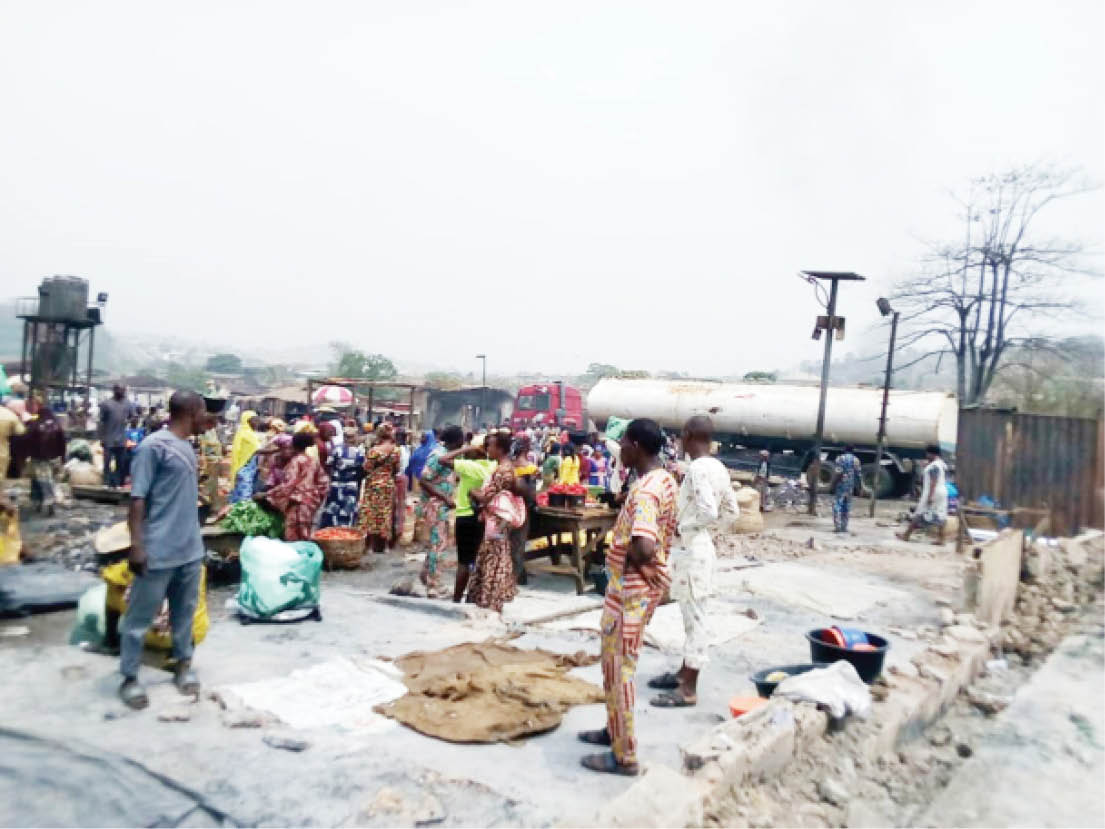For some time now, each passing week proves what it is that Nigeria both needs and lacks the most: leadership. As our country navigates one of the rockiest parts of its journey, it is being left to run its course with no direction from the supposed pilot. With criminality, terrorism and insurrectionist violence becoming a nationwide phenomenon, the deafening silence from the highest office in the land demonstrates beyond question that Nigeria is on autopilot.
Too often, the green-white-green airplane takes dangerous turns that leave one shaking his head in dread and dismay. The latest of these is the dangerous rhetoric generated by the strike of the Amalgamated Union of Foodstuff and Cattle Dealers of Nigeria (AUFCDN). AUFCDN (essentially an association of Northern traders) last week decided to stop transporting food and animals for sale in the South. The union said it took this action due to the government’s failure to address the incessant attacks and killing of its members in the South. Two cases in point are the massacre last month of 17 Northern traders in Shasa Market, Ibadan, and the destruction of businesses and vehicles owned by northerners in the wake of the #EndSARS protest last October.
- Kano tomato, onion farmers, marketers lose big as blockade persists
- Kidnappers proposed to marry us — Freed schoolgirls
As food prices rocketed in the South, the usual suspects started to beat the drum of division. Several so-called activists branded the strike (by a union of a few thousand members) as a “blockade” of the South by the North or even a “declaration of war”. They threatened to retaliate by disrupting transportation of fuel from the South to the North. The word “blockade” carries uneasy baggage from Nigeria’s history: it is the term popularly used to describe the siege of the defunct Eastern Region by Nigerian troops during the Nigerian civil war. Using this word, these ‘activists’ seek to stir up memories of an action that led to the starvation of hundreds of thousands in the darkest chapter of our history, and to push their decades-old narrative that the whole North was responsible. They are intentionally and mischievously seeking to stoke further tension and violence.
Our country has, since its creation, had to put up with a sizeable portion of its politicians and elite attacking its corporate existence, but this has recently started to take a frightening dimension, as their language finds resonance among ordinary people in both the North and the South. It is time to tone down the rhetoric. AUFCDN has a right to protect the lives and property of its members in the best legally permissible way. But as the Bible says, “all things are permissible, but not all things are beneficial”. Every action we take must be seen in its wider socio-economic and political context. There is no question that Southern Nigeria has always relied on food and meat supply from the North. This reliance has intensified with the federal government’s recent policy banning food importation. Thus, to completely stop movement of foodstuff to the South is to punish all Nigerians living in the South for the crime of a few. Moreover, rather than calming the waters, the AUFCND’s actions have been further exploited by the agents of hate.
Two things must happen. Firstly, AUFCDN should call off this strike action, and resume the free flow of supplies to our southern brothers and sisters. Secondly, southern leaders (and particularly groups like Afenifere and Agbekoya, that have been stoking the violence) must take steps to reassure northern traders that their lives and property are safe in the South. This latter step is for everyone’s benefit: even if AUFCDN calls off the strike, traders will not work in the South if they believe themselves and their livelihoods to be in unacceptable danger.
This dangerous episode should inspire a positive lesson: No part of Nigeria is a self-sufficient island. Each part of this country is uniquely endowed and plays a crucial role in making Nigeria a habitable place. Certainly, the South houses the oil that fills our national purse, but the North is not the “parasite” it has often been portrayed to be. With vast arable land for farming and grazing, the North is the food basket of the nation. Just as the northerners cannot fuel their power with cow urine, so the southerners can’t cook their crude oil for dinner. Similarly, northern traders must understand their action may inflict economic pains on southerners, but if a section of the South decides to disrupt oil supply to the North, the North will equally be grounded. The relationship between North and South is symbiotic, not parasitic.
The governors forum has thankfully started filling the vacuum left by President Buhari. This should be sustained. But there is an urgent need for traditional and religious leaders, such as the Sultan of Sokoto, and organisations like the Northern Elders Forum, to be more active in engaging their southern counterparts and finding solutions to the issues threatening harmonious coexistence. Those of us on social media also have a big part to play. We must not peddle conspiracies that promote ethnicism and hate. We must understand that we have only one country to beat our chest and call ours. It is Nigeria. If it fails, we will have to bear the brunt.
More broadly, Nigerians should recognise that they are not enemies of one another. Hausa, Igbo or Yoruba are not the problem of Nigeria, nor are southerners or northerners. We are all victims and have common enemies in insecurity, poverty and lack of opportunities, exacerbated by corrupt politicians who care only for themselves and their families. We will be united by addressing these issues and creating a prosperous country. Success is the key to our unity, but it takes time, patience and energy. These bleak times should not make us lose hope and despair. We must collectively pilot this airplane in our journey to the promised land.

 Join Daily Trust WhatsApp Community For Quick Access To News and Happenings Around You.
Join Daily Trust WhatsApp Community For Quick Access To News and Happenings Around You.

